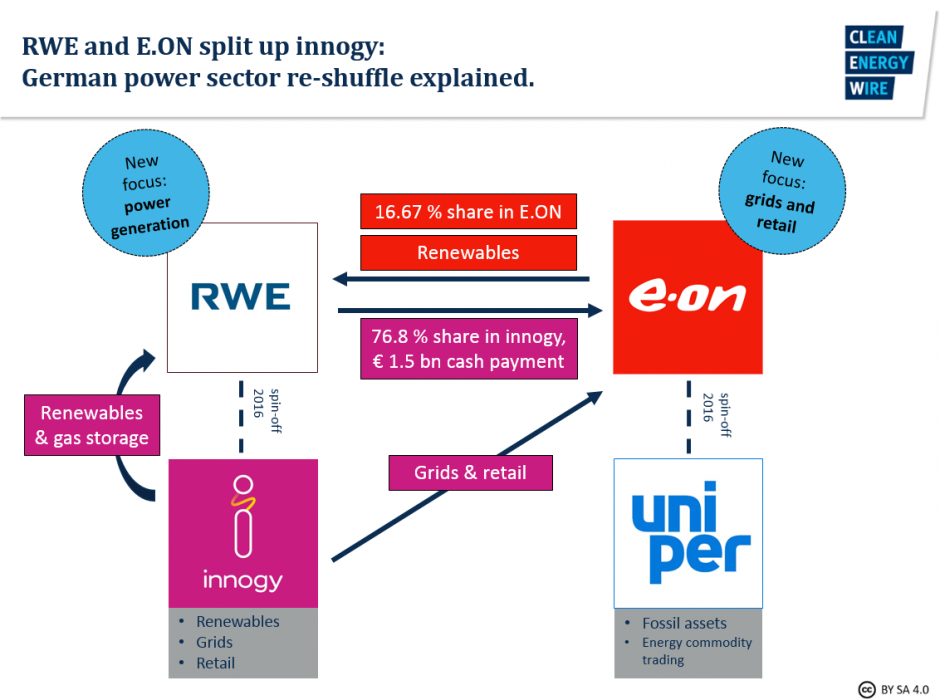Support-free bids again in Germany’s second offshore wind auction
Federal Network Agency
Support-free bids accepted again in Germany’s second offshore wind auction as average support surges
More investors offered to build offshore wind farms without any financial support in Germany’s second offshore wind power auction, but the average support rate increased significantly compared to the previous auction, the Federal Network Agency (BNetzA) says in a press release. Average support in the auction of 1.6 gigawatt (GW) capacity surged to 4.66 cents per kilowatt hour (ct/kWh) after it stood at 0.44 ct/kWh in the first auction in 2017, a result that surprised many observers at the time. “The new result reflects the changes in competition that we see with respect to the first auction,” BNetzA head Jochen Homann said. Only projects already participating in the first auction were considered and a “Baltic quota” preferred bids for the Baltic Sea over those for the North Sea to contribute to a more even distribution of turbines in German waters. The highest accepted bid was 9.83 ct/kWh. Homann added that it was “pleasing” to see that idle grid connection capacities would now be utilised almost completely, avoiding “unnecessary vacancy costs.”
Find the press release in German here.
See the CLEW factsheet on German offshore wind power for background.
tageszeitung (taz) / Clean Energy Wire
Germany’s economy and energy minister Peter Altmaier said that current amendment plans for the Renewable Energy Act (EEG) do not yet include “special auctions” for onshore wind and solar PV, which were agreed in the grand coalition treaty, reports Bernhard Pötter in the tageszeitung (taz). Altmaier said the current reform package dealt with “time-sensitive points” like creating legal security regarding state aid issues. After the summer break, there would be a proposal to “implement all requirements, including also the special auctions” and the question of sufficient grid carrying capacity. To come closer to reaching Germany’s 2020 climate target, the new government coalition had agreed to introduce additional auctions for onshore wind and solar PV in 2018 and 2019 “provided that the grid’s carrying capacity is sufficient”. Social Democrat (SPD) member of the federal parliament Nina Scheer had criticised coalition partner conservative CDU/CSU for blocking the auctions. The conservatives “risk missing energy and climate targets with open eyes,” she said in a statement.
For background, read the CLEW factsheet Climate, energy and transport in Germany's coalition treaty.
Allianz pro Schiene
Rail industry associations and key companies have presented their joint vision of a climate friendly, cost-effective regional rail transport of the future, so that it can “bid farewell to the diesel drive”, writes the transport alliance Allianz pro Schiene in a press release. The sector’s eventual goal is 100 percent e-mobility, including fuel-cell and battery technologies on off-grid tracks, and giving up diesel for new trains by 2024, write companies including Siemens, Bombardier and Alstom in a paper. As trains are built to be used for up to 30 years, it is important that all actors now identify key characteristics for future regional transport. The paper should be seen as an “invitation by the sector to the government for a future pact on regional transport”, the paper says.
Find the press release in German here and the paper in German here.
For background, read the CLEW dossier The energy transition and Germany’s transport sector.
Reuters / E.ON
German energy company E.ON published its 5.2-billion-euro takeover offer for a minority stake in innogy, part of a plan to break up the RWE renewables carve-out, reports news agency Reuters. E.ON said its offer for the 23.2 percent in innogy not owned by RWE is worth 40 euros per share, including dividend payments to innogy shareholders for 2017 and 2018. RWE and E.ON in March presented comprehensive plans to swap assets, turning RWE into Europe’s second-largest wind utility and E.ON into Europe’s largest operator of gas and power networks.
Find the Reuters article in English here and the press release in English here.
For background, read the CLEW piece Deal between utilities E.ON and RWE set to reshuffle German energy market and the dossier Utilities and the energy transition.
Misereor
A fairer procurement of resources needed to manufacture renewable energy facilities would help the energy transition “make a real contribution to more global justice and climate protection,” says catholic relief organisation Misereor in a press release. The boom of renewables has a “problematic side effect”, as it entails an increased need for natural resources, like iron ore from Brazil, copper from Peru and Chile, and bauxite from Guinea. While German companies put a lot of focus on sustainability criteria, human rights due diligence is still not implemented sufficiently, according to a Misereor study. “For renewables to actually supply ‘clean’ power, resource procurement must be free from human rights violations,” said Pirmin Spiegel, managing director at Misereor.
Find the press release in German here and the study in German here.
Focus Online
German utility RWE’s CEO Rolf Martin Schmitz said that the company’s property rights need to be ensured in the debate about possible early shutdowns of its coal-fired power plants, writes Focus Online. At an RWE shareholder meeting, Schmitz also warned of an accelerated coal exit. “Phasing out nuclear energy and coal power at the same time – that’s too much,” said Schmitz.
Find the article in German here.
Read a CLEW factsheet on the issues of a German coal phase-out here.
Bundesrat
The German energy transition demands not only the expansion, but also the optimal use of the power grid, says the council of Germany's federal state governments (Bundesrat). Possible measures include power line monitoring, or the use of high-temperature wires to increase transmission capacity. The decision will be sent to the federal government, but there are no set deadlines for the legislative process, writes the Bundesrat.
Find the press release in German here.
For background, read the CLEW dossier The energy transition and Germany’s power grid.


